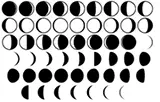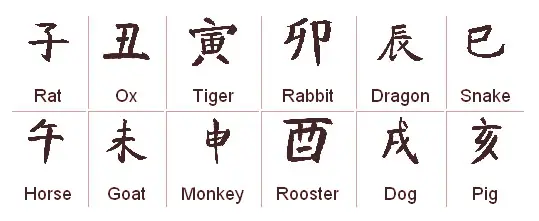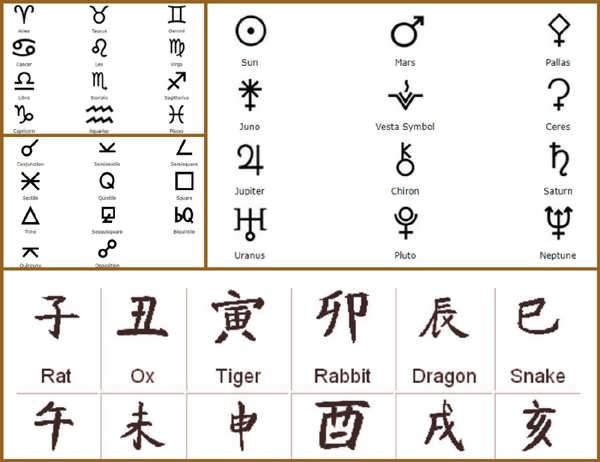Astrological symbols are images used in various astrological systems to denote relevant objects. The glyphs of the planets are usually (but not always) broken down into four common elements: A circle denoting spirit, a crescent denoting the mind, a cross denoting practical/physical matter and an arrow denoting action or direction.
On this page of astrology symbols, you will find symbols representing the celestial bodies. You will also find the astrological symbols of the signs of the zodiac. In this section, we have also included astrology symbols of the Aspects. Here is some more information on the Aspects.
In astrology, an aspect is an angle the planets make to each other in the horoscope, and also to the ascendant, midheaven, descendant, and nadir. The aspects are measured by the angular distance along the ecliptic in degrees and minutes of celestial longitude between two points, as viewed from the Earth. They indicate focal points in the horoscope where the energies involved are given extra emphasis. The astrological aspects are said to influence affairs on Earth according to millennia of astrological tradition.

Lunar Phases: Lunar phases refer to the changing shapes of the Moon’s illuminated portion as visible to an observer on the Earth. As the moon orbits around the Earth, the lunar phases undergo cyclical changes that are influenced by the varying relative positions of the Sun, Moon, and Earth. There are eight lunar phases – New moon, Crescent moon, First Quarter moon, Gibbous moon, Full moon, Disseminating moon, Last Quarter moon, and Balsamic moon.
The Moon has a strong astrological significance. It is linked with the emotional makeup, maternal instincts, moods, memories, and unconscious habits of a person. The aspects made by the Moon with the other planets make a big impact on the happenings in our lives.
The Celestial Bodies
These are the astrological glyphs most commonly used in Western Astrology.
|
Moon |
Mercury |
Venus |
|
Sun |
Mars |
Pallas |
|
Juno |
Vesta Symbol |
Ceres |
|
Jupiter |
Chiron |
Saturn |
|
Uranus |
Pluto |
Neptune |
|
Earth |
The Zodiac Signs
In astronomy, the zodiac is the ring of constellations that lines the ecliptic, which is the apparent path of the Sun across the celestial sphere over the course of the year. The paths of the Moon and planets also lie roughly within the ecliptic, and so are also within the constellations of the zodiac. In astrology, the zodiac denotes those signs that divide the ecliptic into twelve equal zones of celestial longitude. As such, the zodiac is a celestial coordinate system, or more specifically an ecliptic coordinate system, taking the ecliptic as the origin of latitude, and the position of the sun at the vernal equinox as the origin of longitude.
Aspect Symbols
In astrology, an aspect is an angle the planets make to each other in the horoscope, and also to the ascendant, midheaven, descendant, and nadir. The aspects are measured by the angular distance along the ecliptic in degrees and minutes of celestial longitude between two points, as viewed from the Earth. They indicate focal points in the horoscope where the energies involved are given extra emphasis. The astrological aspects are said to influence affairs on Earth according to millennia of astrological tradition.
|
Conjunction |
Semisextile |
Semisquare |
|
Sextile |
Quintile |
Square |
|
Trine |
Sesquisquare |
Biquintile |
|
Quincunx |
Opposition |
|
Chinese Zodiac Signs
Chinese astrology does not deal with the heavenly constellations and planets but is a diving science of the cycles of time and the five elements of earth, water, fire, metal, and wood. The Chinese zodiac signs are named after the 12 animals that are believed to have arrived to bid farewell to the Buddha when he summoned all animals before departing from the Earth. These animals were honored by naming a year after each. According to the Chinese, the animal ruling a person’s lunar birth year has a significant influence on his/her personality and destiny.


























